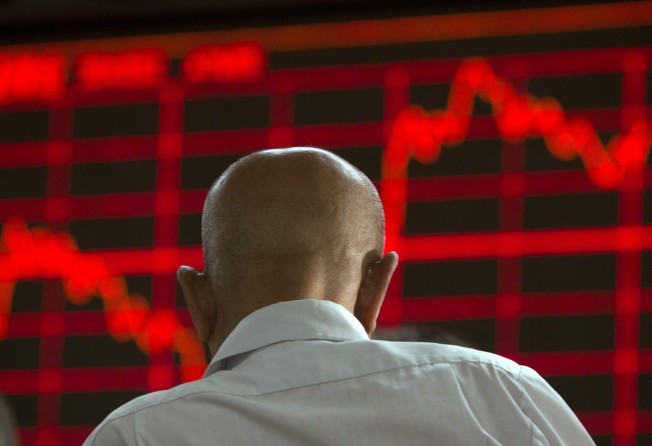
Investors licking their lips after China market rout

The slow drip of the Chinese economic water torture continued with the publication of the Caixin/Markit purchasing managers' index report. It showed the landing of the Chinese economy was way past the hard category. And did the markets hate it?
The July index showed manufacturing activity was shrinking worse than expected - and at a faster rate. Manufacturing output, export orders and output prices were all decreasing at a faster rate while input prices were decreasing at a slower rate. This sharpest contraction since 2009 comes on top of a bungled dirty flotation of the currency that was supposed to be good news.
Black Knight Optimism still abounds. The chief economist of Caixin, He Fan, said the figures "indicated that the economy is still in the process of bottoming out". You recall that in the film Monty Python and the Holy Grail, the Black Knight had a sword duel with King Arthur that resulted in both his arms and legs being chopped off. From his prone position, he defiantly said to his opponent: "OK, let's call it a draw!"
One of the problems has been China's insistence of retaining a face-saving economic growth rate of "above 7 per cent". Too many teenage-scribbling analysts have taken this figure at face value for too long. Some middle-aged scribbling, on the back of a fag packet, is quite revealing.
It is easy to cobble together a rough index of economic activity incorporating retail sales, industrial production and electricity generation. Since 2010, such a homemade index has dropped from 47 to 17 by June this year. Dividing that index by the People's Bank of China's "official annual [gross domestic product growth" (which was 10.6 per cent in 2010, sliding to 7.4 per cent last year and 7 per cent this year), you can derive a ratio linking activity and GDP.
That ratio was 4.4 in 2010, followed by 7.7, 3.8, 4 and 3.2 in subsequent years. By June this year, it fell to 2.42. Assuming the true GDP growth rate moves in line with economic activity, by averaging the ratio for the first three years, the true effective GDP this year should be 3.2 per cent - around that of the United States. This analysis may not pass muster from an academic scribbler, but the beer mat pretty well trumps the official data.
The question the markets are asking is whether a souring Chinese economy and markets will infect other world economies. Will Wall Street damage Main Street? Naturally, China's slowing demand will be contagious to commodity currencies like the Australian dollar. Markets in the Association of Southeast Asian Nations are licking their wounds because of their dependence on (and competition with) China as a trading partner.
It is less obvious why all the other emerging markets have been so hard hit - the baby is being thrown out with the bathwater. India, for instance, is a huge net importer of ever-cheapening Chinese goods. No doubt investors will soon be licking their lips over bargains appearing in that market.
There is even less reason for Europe and the US to be worried. Yes, China is a big buyer of French luxury brands, German cars and US aircraft, but a mere 3 per cent devaluation of the yuan is pathetic, and most Chinese people are priced out of those goods anyway - the rich will always be able to buy nice things.
It seems to be more of a case that Western markets are looking for a decent excuse to fall, either now or in September/October (as they normally do). After all, the last real breather in this bull run was in August 2011 when the Street fell more than 16 per cent.
Meanwhile, US jobs, housing and growth are tickling along nicely. Europe is recovering at last and their industrialised economies will get a boost from falling commodity prices. Britain is booming, so much so that some observers believe it might even raise rates before the US.
So severe indigestion within a weakened Chinese economy may starve some of the world, but it is likely to feed the global engines of economic growth, which is needed to energise the whole.
If we continue to see contagion - fear for fear's sake - this may be a time not for investors to lick their wounds, but lick their lips. For the first time in a while, successful investors may be those who rely on fundamentals rather than gut feeling.
Richard Harris is the chief executive of Port Shelter Investment Management